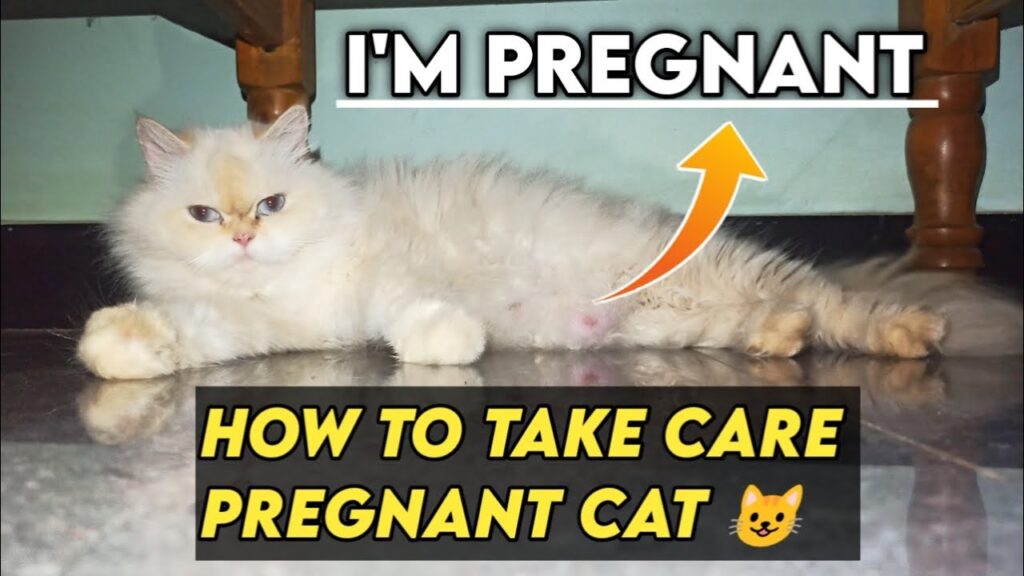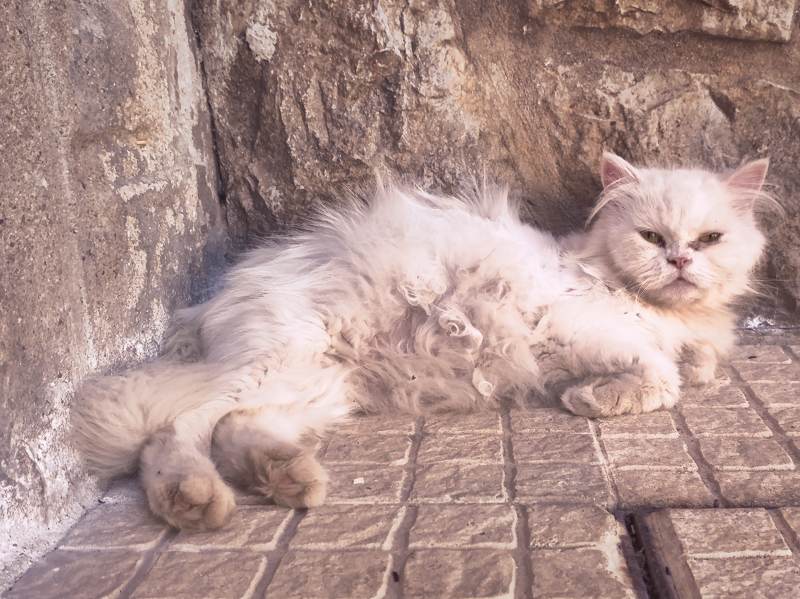If you’re a proud owner of a pregnant Persian cat, congratulations! Taking care of a pregnant feline requires special attention and care to ensure the health and well-being of both the mother and her precious kittens. From providing a nutritious diet to monitoring her behavior and preparing a cozy nesting area, there are several key aspects to consider. In this article, we will explore the essential guidelines and tips for caring for a pregnant Persian cat, helping you navigate through this exciting and crucial time with confidence. So, let’s embark on this rewarding journey and make sure your furry friend enjoys a safe and comfortable pregnancy experience.
Caring for a Pregnant Persian Cat
Bringing a new life into the world is an exciting and joyous experience, especially when it comes to your beloved Persian cat. As a responsible pet owner, it is crucial to provide the necessary care and support to ensure a healthy pregnancy and successful birth. In this article, we will guide you through the essential aspects of caring for a pregnant Persian cat, from preparing for pregnancy to postpartum care.

Preparing for Pregnancy
Before your Persian cat becomes pregnant, it is important to ensure she is in optimal health. Take her for a thorough check-up with your veterinarian to address any underlying health issues. Ensure that she is up to date on vaccinations and parasite prevention to ensure a safe pregnancy.
Creating a quiet and peaceful environment for your pregnant Persian cat is also crucial. Provide a cozy nesting area where she can rest comfortably. This should be a secluded space where she feels safe, away from any potential stressors or disturbances.
Identifying Pregnancy
Identifying whether your Persian cat is pregnant can sometimes be challenging, as the physical changes may not be immediately apparent. However, there are certain signs you can look out for. Around 2-3 weeks after breeding, your cat’s nipples may become larger and more prominent. Additionally, she may experience weight gain and a noticeable increase in appetite. Consult with your veterinarian for confirmation through diagnostic tests such as ultrasounds or palpation.
Creating a Comfortable Environment
To ensure a stress-free and peaceful pregnancy for your Persian cat, it is important to create a comfortable environment. Provide a nesting box filled with soft bedding materials, such as towels or blankets. Make sure the nesting area is clean, cozy, and located in a quiet space. This will provide the ideal environment for your cat to relax and prepare for the upcoming birth.
Nutrition and Feeding
Proper nutrition is crucial during pregnancy to support your Persian cat’s health and the development of her kittens. Consult with your veterinarian to determine the appropriate diet and feeding schedule for your pregnant cat. Generally, it is recommended to provide a high-quality commercial cat food specifically formulated for pregnant or nursing cats. These foods are balanced and contain essential nutrients necessary for the wellbeing of your cat and her growing kittens.

Exercise and Activity
While your pregnant Persian cat needs plenty of rest and relaxation, it is important to encourage gentle exercise and activity to maintain muscle tone and prevent excessive weight gain. Provide opportunities for brief play sessions, but ensure they are not too strenuous. Encourage interactive toys and engage in low-impact activities to keep your cat active without straining her.
Monitoring Health and Behavior
Throughout your Persian cat’s pregnancy, it is crucial to closely monitor her health and behavior. Keep an eye on her eating habits, water consumption, and litter box usage. Any significant changes in these areas could be an indication of an underlying health issue. Monitor for signs of discomfort, distress, or unusual behavior and consult with your veterinarian if you have any concerns.

Common Health Issues during Pregnancy
While Persian cats generally have a smooth pregnancy, there are certain health issues that can arise. These may include complications such as gestational diabetes, uterine infections, or difficulties during labor. Regular veterinary check-ups and open communication with your veterinarian can help identify and address any potential problems in a timely manner.
Grooming and Hygiene
Proper grooming and hygiene are essential for the wellbeing of your pregnant Persian cat. Regularly brush her coat to prevent matting and ensure it remains clean and healthy. Pay extra attention to her rear end, as it may need occasional cleaning to prevent any discomfort or infection. Trim her nails regularly to prevent any accidental scratching or injury.

Handling Labor and Birth
When the time comes for your Persian cat to give birth, she will require your support and assistance. Provide a calm and quiet space for her to deliver her kittens. Be prepared with clean towels or blankets to help with the birthing process and to keep the kittens warm immediately after birth. Monitor the progress of labor but allow your cat to handle the process naturally. If you have any concerns, contact your veterinarian for advice.
Postpartum Care
After the delivery of her kittens, your Persian cat will require postpartum care and support. Make sure she is eating well and stays hydrated. Provide a safe and warm area for her and her kittens to bond and nurse. Monitor the well-being of the kittens and consult with your veterinarian if you notice any signs of distress or health issues. Remember to give your cat plenty of love, attention, and rest during this period as she recovers from the birthing process.
By following these guidelines and providing your pregnant Persian cat with the care she needs, you can ensure a healthy and successful pregnancy. Remember to consult with your veterinarian for personalized advice and guidance throughout the process.
Question and Answers:
- How can I prepare my Persian cat for pregnancy?
- Before your cat becomes pregnant, ensure she is in optimal health with a veterinary check-up. Create a peaceful environment and provide a cozy nesting area for her.
- What are the signs of pregnancy in Persian cats?
- Look for enlarged nipples, weight gain, and increased appetite. Consult with your veterinarian for confirmation through diagnostic tests.
- What should I feed my pregnant Persian cat?
- Consult with your veterinarian for a suitable diet. Generally, high-quality commercial cat food formulated for pregnant or nursing cats is recommended.
- How much exercise should a pregnant Persian cat get?
- It is important to encourage gentle exercise and low-impact activities to maintain muscle tone. Avoid strenuous activities and prioritize rest.
- What health issues can arise during pregnancy in Persian cats?
- Complications such as gestational diabetes, uterine infections, or difficulties during labor can occur. Regular veterinary check-ups are crucial to identify and address potential problems.
- How should I groom my pregnant Persian cat?
- Regularly brush her coat to prevent matting and clean her rear end if necessary. Trim her nails regularly to avoid accidental scratching.
- What should I do during labor and birth?
- Provide a calm space for your cat to deliver her kittens. Keep clean towels or blankets ready and monitor the progress. Contact your veterinarian if you have concerns.
- How can I care for my Persian cat after giving birth?
- Ensure your cat is eating well and staying hydrated. Provide a safe and warm area for her and her kittens to bond and nurse. Monitor the kittens’ well-being and seek veterinary advice if needed.
- How can I monitor my Persian cat’s health during pregnancy?
- Keep a close eye on her eating habits, water consumption, and litter box usage. Look out for signs of distress or unusual behavior and consult with your veterinarian if concerned.
- Is it necessary to consult with a veterinarian during my cat’s pregnancy?
- Yes, regular veterinary check-ups and open communication with your veterinarian are essential to ensure the optimal health and well-being of your pregnant Persian cat.

